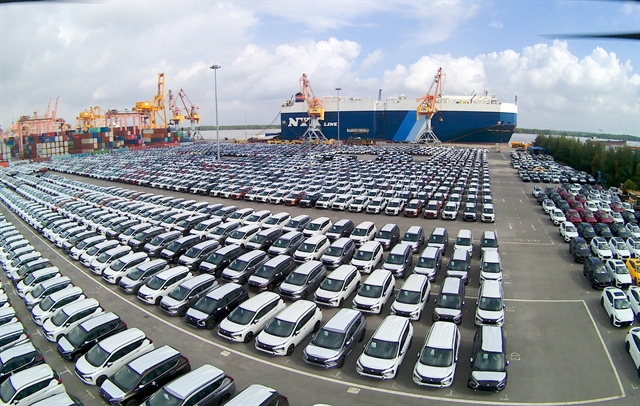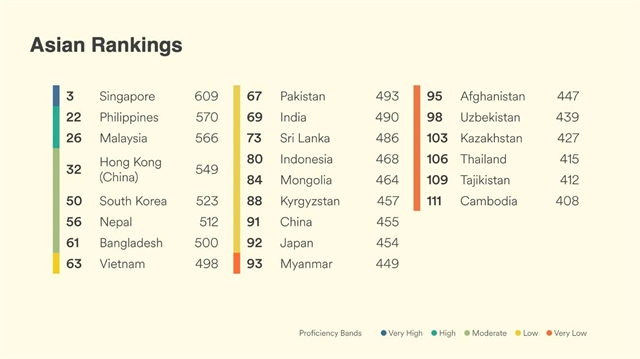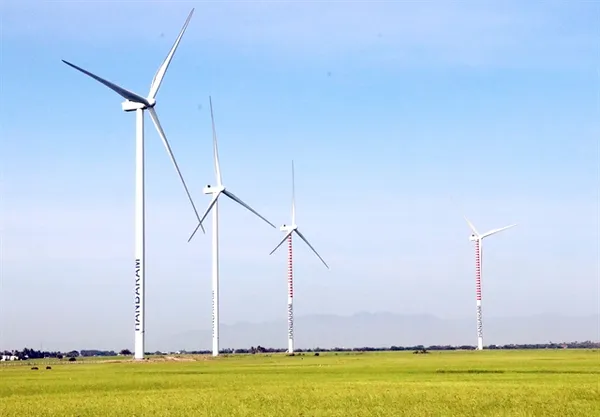 World
World

British Prime Minister Theresa May gave her backing to a legislative compromise on Wednesday allowing Brexit to be delayed, avoiding another parliamentary defeat while promising that pushing back the departure date would only happen in “exceptional circumstances”.
LONDON — British Prime Minister Theresa May gave her backing to a legislative compromise on Wednesday allowing Brexit to be delayed, avoiding another parliamentary defeat while promising that pushing back the departure date would only happen in “exceptional circumstances”.
The comments came as the European Commission said that it wants a post-Brexit transition period, during which Britain must continue to obey EU rules, to finish at the end of 2020.
Chief EU Brexit negotiator Michel Barnier said that “all EU policies will still apply” during the transition to a new relationship between London and Brussels following Britain’s exit from the union.
“From our point of view, the logical end should be December 31, 2020,” Barnier said at a press conference in Brussels as he presented the new Brexit negotiating guidelines produced by the commission, the EU’s executive arm.
This would coincide with the end of the EU’s seven-year budget for 2014 to 2020, he said.
Later Wednesday, during a grilling from the British parliament’s powerful liaison committee, May defended the idea -- and proposed length -- of a transition phase.
“I haven’t begged the EU for two more years,” she said, arguing it was to allow businesses and governments time to make necessary changes.
Date compromise
The specific date of Britain’s departure from the bloc has become a flashpoint in draft Brexit legislation, which moved closer to becoming law Wednesday as parliament concluded its eighth and final day of scrutiny.
May, who suffered a humiliating defeat by pro-EU members of her own Conservative Party last week when MPs voted to ensure lawmakers have the final say on any divorce deal with Brussels, this time managed to avoid another rebellion.
The government had planned to enshrine the exact date and time of Brexit -- March 29, 2019 -- in law, but bowed to pressure and agreed to compromise by allowing ministers to move the date if necessary.
May told the House of Commons that the amendment allowing flexibility on the departure date “would only be in extremely exceptional circumstances and it would only be for the shortest possible time”.
Speaking during weekly questions ahead of the lawmakers’ debate, she added she remained clear that “we’re leaving the EU on the 29th March 2019”.
The key amendment was subsequently approved in the House of Commons unopposed, allowing the EU withdrawal law to pass the so-called committee stage.
The bill has two days of further debate by MPs in January, when the amendment could be reviewed, before it goes to the unelected upper House of Lords for debate.
Britain’s EU withdrawal law would formally end its membership of the bloc and transfer EU rules into its statute books.
Future relationship unclear
EU leaders signed off last week on the first stage of Brexit negotiations, ending more than a year of stalemate over Britain’s bill for leaving the bloc, as well as the fate of the Irish border and EU expatriates.
Talks on the post-Brexit transition period are to start in January, while negotiations on the future relationship between Britain and the EU, including steps towards an eventual trade deal, are due to begin in March.
The EU has said it wants to have a free trade deal with Britain ready to go at the start of 2021, as soon as the transition ends.
However, EU leaders remain unclear about what Britain wants from the future relationship, including the shape of any trade deal.
Cabinet ministers held their first detailed discussion on the long-term economic partnership at a meeting on Tuesday, though no negotiating position was finalised, and further talks are expected in early January.
May’s spokesman said Tuesday that she had called for “a deal which secures the best possible trading terms with the EU, enables the UK to set rules that are right for our situation and facilitates ambitious third-country trade deals”.
But May’s ministers are divided over how closely to stick to European regulations after Brexit, with some favouring convergence to secure the best possible trading ties, and others calling for a new approach.
Brussels meanwhile has repeatedly warned Britain that it cannot expect to leave the EU’s single market and customs union, and maintain all its benefits.
Barnier has said that any deal struck would inevitably result in Britain’s banks and financial companies losing their rights to trade across the bloc. — AFP









